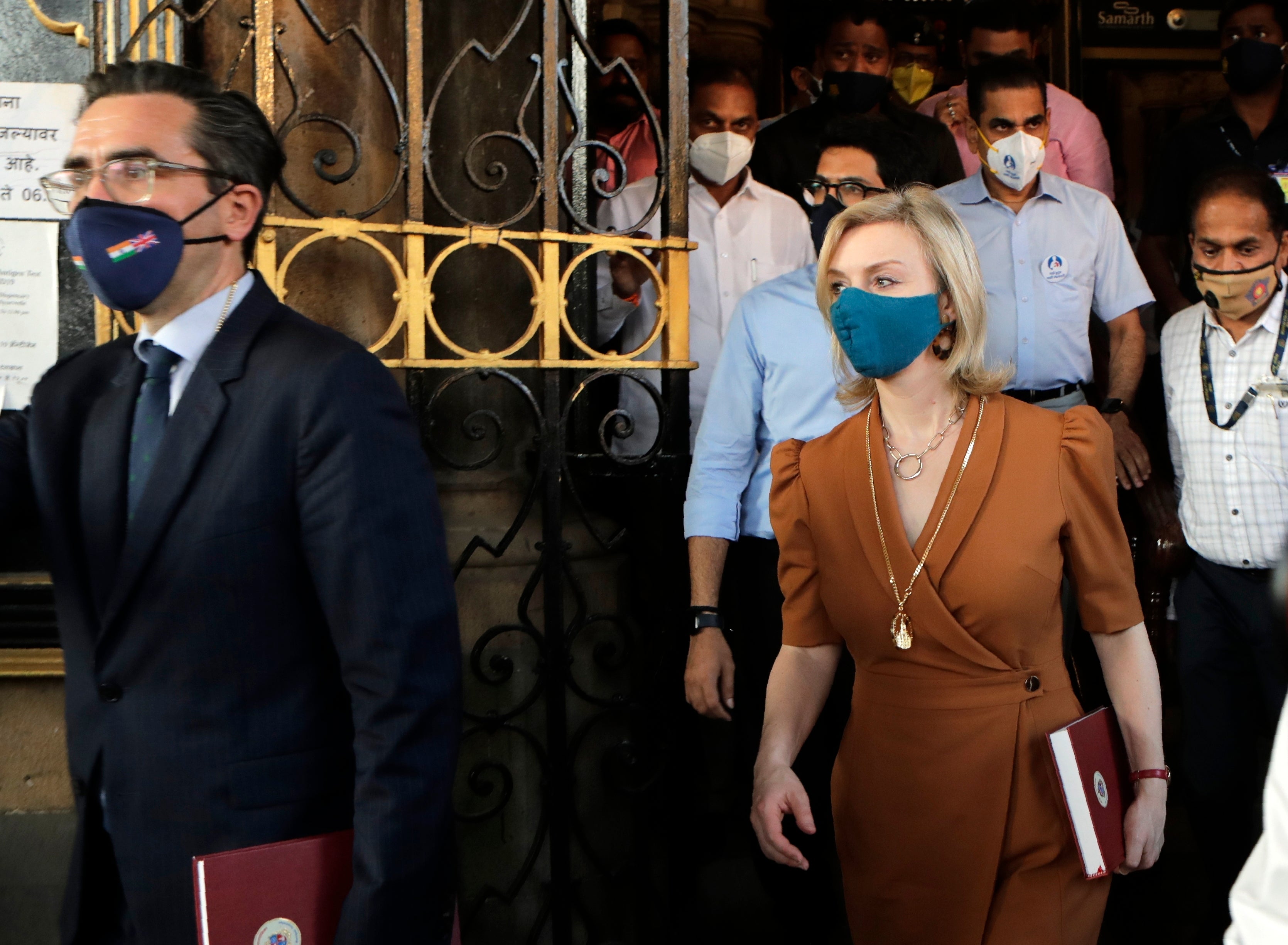What’s the truth about the UK’s new trade ‘deal’ with India?
Is this really an agreement that will boost UK-India trade and which serves to vindicate Brexit or has the rhetoric run away from the reality? Ben Chu investigates


Liz Truss, the UK’s international trade secretary, on Wednesday completed an official visit to India after announcing an enhanced trade partnership (ETP) with the Delhi government at the weekend.
The agreement has been heavily promoted in the UK media in recent days as a “new trade deal”, which will significantly add to the levels of commerce and investment between the two countries.
The Sun quoted an anonymous government source saying that: “This is a big win for Britain and shows exactly why we left the EU…More trade equals more jobs, and this announcement shows that.” Another told the Daily Express that “it’s a golden Brexit bonanza”.
But is that characterisation accurate? Is this really an agreement that will boost UK-India trade and which serves to vindicate Britain leaving the EU?
Or has the rhetoric lost touch with the reality?
The first thing to appreciate is that this is not, actually, a trade deal, meaning a bilateral agreement between two countries that dismantles most tariff barriers on imports and exports.
The UK government itself describes the ETP as “part of a development of a road map that would lead to a potential FTA [free trade agreement]”.
Essentially, it’s an agreement to keep talking about potentially striking a genuine deal at some unspecified point in the future. This is certainly not worthless but it’s very misleading to characterise it as a deal in itself.
A free trade deal with India – with its 1.37 billion population, fast-growing economy and relatively high tariff walls - would undoubtedly be a major prize for Britain, or indeed any developed economy.
The European Union held exploratory talks with India about lowering trade barriers in 2007 to this end – but they didn't go anywhere.
One of the major stumbling blocks, in terms of the demands from Delhi, was a liberalisation of the visa regime for their professionals to travel and work in Europe. Ironically, it was the UK, then an EU member state, which objected to that and put a brake on the negotiations.
The visa issue came up again when Theresa May’s government held exploratory trade deal discussion with the Indian government in the wake of the 2016 Brexit vote.
The UK was told any future post-Brexit trade deal would depend on the willingness of the Britain to grant preferential treatment to Indian workers to travel and work in Britain. That too put a dampener on talks.
The relevant question is whether this is likely to be any less of an obstacle now, especially given the UK has imposed a restrictive post-Brexit immigration regime?
There could be obstacles in terms of the UK’s market access demands too. The UK will likely want India’s high alcohol import taxes to be reduced to help Scottish whisky producers. But Indian states, which have long sought to crackdown on alcohol consumption, are unlikely to be keen. Indeed, India’s very constitution commits the government to "endeavour to bring about prohibition of the use…of intoxicating drinks”.
There was a strong hint of these problems in the government’s press release on the weekend’s agreement, which referred to “mutual understanding of each other’s priorities and trade sensitivities”.
Analysts also suspect Indian civil servants and politicians will be less enthusiastic about opening up the domestic services sector to foreign competition than the pro-liberalisation executives of Indian multinationals who British ministers tend to talk to.
A trade deal is not impossible but an awful lot would have to go right for it to happen
“India’s number one priority usually is going to be domestic employment – keeping people in jobs. It’s not an obvious target [for a trade deal],” says David Henig of the European Centre for International Political Economy think tank.
“It’s not impossible but an awful lot would have to go right for it to happen”.
But isn’t there progress already?
The government has claimed that Ms Truss's visit secured “investment wins” for the UK, citing a plan by Tata Consulting Services to create 1,500 jobs in the UK and for an Indian biotechnology firm called Wockhardt to invest in Wrexham.
Yet these are the sort of the investment decisions that are always paraded during ministerial visits to foreign countries – and most would have happened anyway.
Finally, it’s important to recognise that even if the UK were to strike a free trade deal with India the effect is likely to be less transformative than the hype suggests.
The UK’s bilateral trade with India in 2019 was comprised of £8bn of exports and £16bn of imports, so £24bn in total.
That’s around 2 per cent of our total trade, compared with roughly half of our trade done, in that year, with the countries of the European Union.
Leaving the EU single market and the customs union is expected to destroy a considerable chunk, perhaps a third, of our European trade (relative to otherwise) over the coming decade.
Even with heroic assumptions about the timing of a new trade deal with India and about its scope, it’s simply not credible that it could offset anything but a rather insignificant fraction of the trade losses resulting from Brexit.

Join our commenting forum
Join thought-provoking conversations, follow other Independent readers and see their replies
Comments